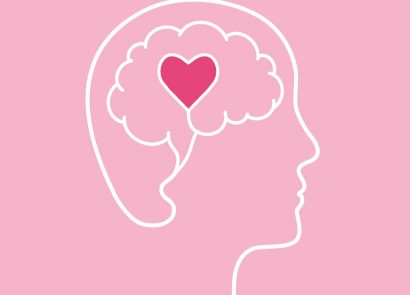Do you find yourself struggling to remember where you put your keys? Or what you did last week? Well, you’re not alone. According to the mental health charity MIND, about 40 percent of people will suffer from memory loss as they get older and the World Health Organisation predicts a whopping 204 percent increase in people with dementia in the next 30 years. But luckily, flagging brain power isn’t an inescapable fact of life. “There is a lot we can do to keep our brains young,” says neuroscientist Dr Gary Small of the University of California. “Genetics is only one third of what predicts brain ageing, the other twothirds are environment and the lifestyle choices we make.” So what are you waiting for? Follow our easy brain-boosting tips and you’ll be firing on all cylinders in less than a fortnight!
Day 1
Get a fulfilling job
Having a job you enjoy could help you stay brainier for longer, according to occupational scientists at the Alzheimer’s Disease Research Centre in Wisconsin. They found that people who avoided developing Alzheimer’s in later life were those who worked in complex jobs involving others, such as teachers, social workers and lawyers.
Day 2
Have a curry
One of the main spices in curry powder, turmeric, could help to improve your memory. This is because it contains a compound called curcumin, an antioxidant that helps to prevent brain degeneration. What’s more, Indians who eat curry on a daily basis have the lowest incidence of Alzheimer’s in the world, so go on and grab a korma!
Day 3
Learn to meditate
Meditation plays an important role in slowing the progression of Alzheimer’s according to a US study. Researchers in Boston found that people who performed meditation and yoga for at least two hours per week had better brain connectivity than others.
Day 4
Hang out with your mates
People who have a busy social life and are active in the community are less likely to suffer from Alzheimer’s, according to Craig Ritchie, professor of the Psychiatry of Ageing at the University of Edinburgh. “Brain stimulation, not brain training, is essential in preventing cognitive decline,” he says, “Chatting, being socially interactive with friends and in a work environment is probably what lights up your brain more than anything else.”
Day 5
Have a tipple
While glugging several G&Ts every night will most certainly harm your brain, a modest glass of red wine could actually boost your memory. According to research from Oxford University, half a glass of red wine a day improves cognitive ability and improves memory. Red wine is rich in resveratrol, a flavonoid that boosts blood flow in the brain and reduces the risk of Alzheimer’s.
Day 6
Get more sleep
Most of us need at least seven or eight hours sleep in order to perform properly – and chronic sleep disturbances can severely affect your memory. “This is because a large part of the ‘lay down’ and consolidation period of learning occur during sleep,” says Rita Carter, author of Use Your Brain To Beat Memory Loss (£12.99, Cassell).
Day 7
Take an aspirin
A small does of this popular medicine once a day could reduce your risk of Alzheimer’s, according to scientists, One Swedish study found that women over 70 who took low-dose aspirin were found to have better memory and cognitive function after five years than those who didn’t.
Day 8
Have a handful of blueberries
These power-packed berries are one of the richest sources of brain-boosting antioxidants, essential for a healthy mind. According to Michael Greger, author of How Not To Die (£9.99, Pan Macmillan), research shows that women who ate at least one serving of blueberries and two servings of strawberries each week had slower rates of cognitive decline.
Day 9
Stay stimulated
Like your body, your brain can get out of sorts if you don’t exercise it properly. Research shows that mental stimulation helps to keep your brain healthy, and people with the best memories often have a wide variety of interests and mental challenges. Try taking up crosswords, learning a new language, or writing with your left hand if you are normally right handed.
Day 10
Ditch junk foods
Processed foods that are high in refined carbohydrates and sugar are one of the greatest triggers for brain ageing because they increase insulin resistance in the body. Hannah Braye, nutritionist for Bio-Kult (bio-kult.com), recommends following a low GI eating plan, high in vegetables and healthy fats such as olive oil, avocado, nuts and seeds.
Day 11
Play the piano
Learning a new musical instrument can strengthen the brain’s neural pathways, according to Dr Liron Jacobson, head of neuroscience at Peak Brain Training (peak.net). “By learning a new skill, we can actually make it easier to learn other things in the future, as stronger neural pathways could enable you to face different mental challenges more easily.”
Day 12
Fill up on fish
Oily fish such as mackerel and sardines contain the omega 3 fatty acids DHA and EPA, which are crucial for healthy brain function. In research published in the Journal of Alzheimer’s Disease, scientists found that people with high omega 3 levels had increased blood flow to the brain.
Day 13
Get on your bike
Just a few bursts of physical exercise, such as cycling or jogging three times a week, can trigger a significant boost in your mind power, according to research at the Duke University Medical Centre in the United States. Exercise helps the heart to pump blood to the front part of the brain, which governs organisation and the ability to juggle different tasks.
Day 14
Stock up on B vits
A Dutch study found that people who took 800mcg of folic acid a day had less agerelated memory loss over the course of three years than those who didn’t. Vitamin B-rich foods include wholegrain cereals, rice, nuts, milk, eggs, meats, liver, fish, fruits, and leafy green vegetables.



















